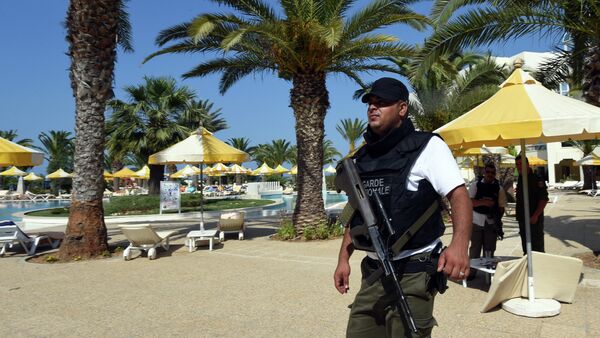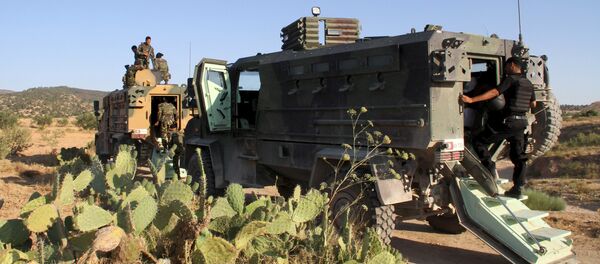"Many, thousands of people gathered in Tunis today to mark the fifth anniversary of the Revolution. When it comes to the political pluralism and democracy, I think we made a great progress on that path if we judged by our achievements. We have a multi-party parliamentary assembly, we have a very progressive and democratic constitution that initiates new things for the Arab world such as gender equality, freedom of expression and freedom of press," Goutali said.
The ambassador stressed, however, that despite Tunisia’s achievements and the democratic election of a president for the first time in the country’s history, many challenges remain, particularly the threat of terrorism.
"It is a new phenomenon for us and it is partially due to the domestic factors such as unemployment and poverty but also due to fact that some groups don't like to see a democratic state in the region," Goutali explained in his interview with Sputnik.
The Tunisian Revolution started on December 18, 2010 with protests that eventually led to the ousting of the country’s long-time leader Zine El Abidine Ben Ali. The revolution marked the start of the Arab Spring – a wave of protests and civil wars in the Arab world.
Last year, Tunisia was shaken by two terrorist attacks — at the Tunis Bardo National Museum in March and at a beach resort in the town of Sousse in June. The two shootings, carried out by Islamists, together killed about 60 civilians, mostly foreign tourists.



